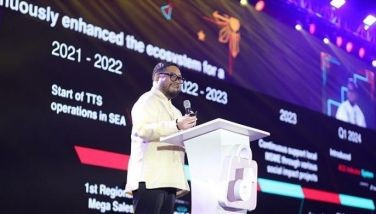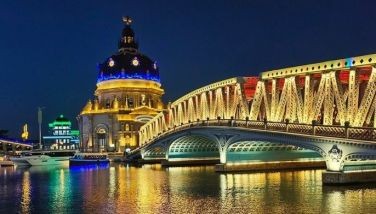Transparency

Back in the 1960s when corruption in the New York Police Department created a hero out of a cop named Frank Serpico, a young graduate of criminal justice left the US Army intelligence service and joined the attorney general’s office in his home state of New York.
Michael Hershman became involved in the investigation of financial fraud and government misconduct.
Hershman later moved to Washington where he served as senior staff investigator for the Senate committee that investigated the Watergate break-in – a probe that would lead to the resignation of Richard Nixon from the presidency.
Hershman subsequently became involved in reviewing laws on wiretapping, in auditing candidates and their campaigns, and exercising oversight on international banks and US-supported international organizations including the United Nations.
What finally sealed his life’s advocacy was his stint as deputy auditor general for the foreign assistance program of the US Agency for International Development. That was when he saw how corruption diverted foreign aid to the wrong pockets and hampered development in the poorest countries.
That was also when he realized that agencies such as the World Bank avoided discussing corruption for fear of antagonizing client states.
In 1990 Hershman got in touch with a World Bank program manager whom he met while working as an Army counterterrorism agent in Germany. Peter Eigen oversaw WB programs in Africa and Latin America and understood Hershman’s sentiments. They were joined by a Briton, Lawrence Cocroft, and the former foreign affairs and law minister of Bangladesh, Kamal Hossain, who later served as the UN’s special rapporteur on Afghanistan.
“We were very frustrated,” Hershman said over dinner Saturday.
He and the others began toying with the idea of forming an international advocacy group against corruption.
“In the course of our adult lives we all get involved in what I call do-good organizations,” Hershman said, grinning.
Eigen offered to go on a one-year sabbatical from the WB to set up the new, penniless, non-profit organization, and offered the use of his house in Berlin as its headquarters. They considered the name “Integrity International” and “Honesty International” before settling on “Transparency International.”
That was in May 1993. Transparency International (TI) now has 100 local chapters worldwide, including one in Manila, and 150 fulltime staff, drawing up tools to fight corruption and assisting corporations, civil society and governments in using those tools.
In 1995, TI started releasing an annual Corruption Perceptions Index (CPI), where the Philippines’ ranking has consistently worsened in recent years. TI also publishes the annual Global Corruption Report, a Bribe Payers Index and the Global Corruption Barometer.
The World Bank and the International Monetary Fund have since recognized the negative impact of corruption on development. In a 2004 report, the World Bank Institute estimated that about $1 trillion was paid in bribes yearly around the world.
Hershman, now 64, still heads the risk and crisis management group Fairfax, which is retained by certain countries to investigate corruption at the top levels of government. Among the company’s investigators are former members of the US Central Intelligence Agency and Britain’s Scotland Yard. Fairfax work contributed to the 1990 ouster of Hussain Muhammad Ershad as president of Bangladesh, a country ranked as the world’s most corrupt for a decade in the CPI.
In 2006, Hershman was named independent compliance advisor to the board of directors of Siemens AG. Two years later, the German engineering giant was fined a whopping $1.6 billion, the largest corporate fine ever, for bribing government officials overseas through secret bank accounts and consultants to secure deals.
“It’s been a wonderful, inspirational time for me, to see it work,” Hershman said.
* * *
Hershman arrived in Manila last Tuesday night on the invitation of the Makati Business Club and the Joint Foreign Chambers of Commerce.
While he noted the “culture of impunity” and the weakness of the rule of law in this country, he emphasized that corruption is a global problem.
“The Philippines should not feel isolated,” he told a small gathering Saturday night, adding, “You cannot talk of a culture of corruption in this country because there is also honesty.”
But he also noted: “In the past 10 years, this country has been under a president that has set a terrible example.”
Hershman is aware that a compromised judicial system is likely to get in the way of a well-meaning campaign against corruption. I asked him what incoming president Benigno Aquino III can do immediately that might bear fruit.
Aquino can reverse GMA’s order on executive privilege, Hershman told me. A special independent commission can be created to investigate corruption and bribery at the top levels. Other countries with weak judicial systems have done this, he said. A sure way of stopping corruption, he adds, is to “follow the money” and seize the proceeds of crime.
We can also follow the example of India and 13 other countries and require companies to sign “integrity pacts” as a condition for bidding for big-ticket government projects. Under the pact, the company vows not to engage in bribery to win a contract; to report a request for a bribe to an oversight committee; to open its books for audit any time throughout the implementation and even after the completion of the project; and to accept a permanent ban on bidding for government projects if it violates the pact.
Hershman emphasizes that corruption is a two-way affair and that private enterprises have to do their part to stop it. The problem must also be seen in a broader light. “The collapse of the financial system in the United States was due to the breakdown of ethics, transparency and accountability,” he said.
He has received many threats in the course of his work and has no illusions about his advocacy, admitting that “you’ll never eliminate” but you can reduce corruption. “I’m realistic. I’m not naïve.”
The next administration will have to improve the enforcement of anti-corruption laws, Hershman said.
“People can violate the law in this country because they know they will not be punished,” he told me. “It’s destroying the social fabric of this country.”
- Latest
- Trending





















